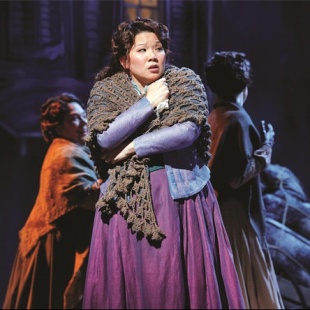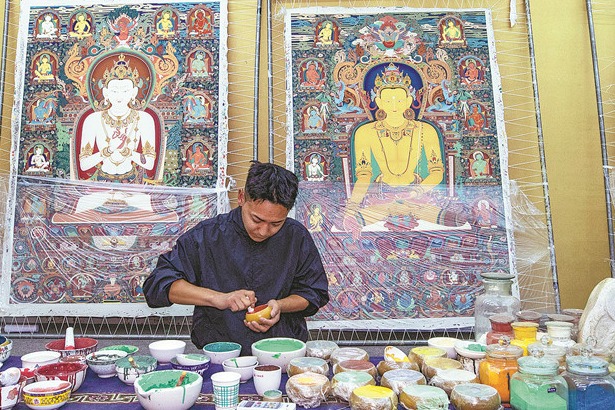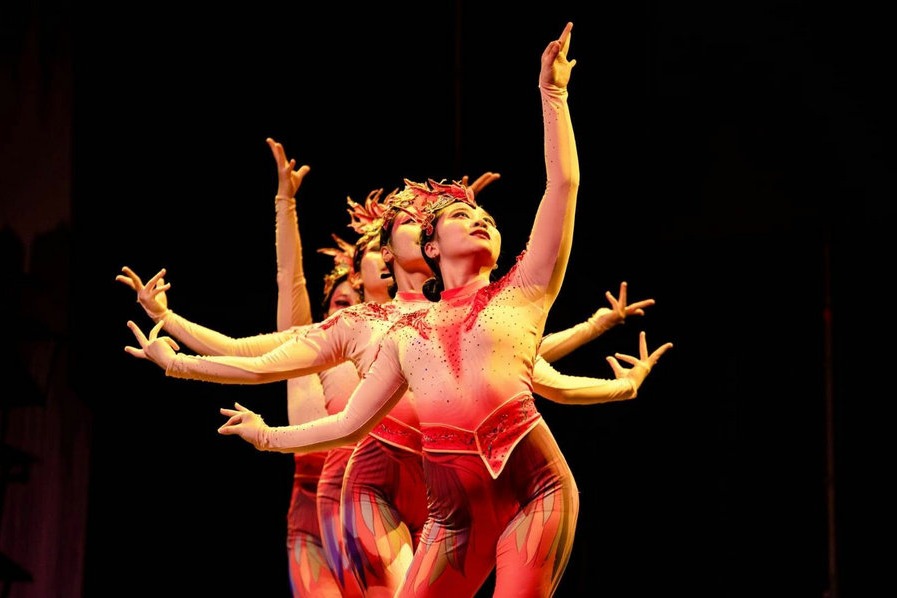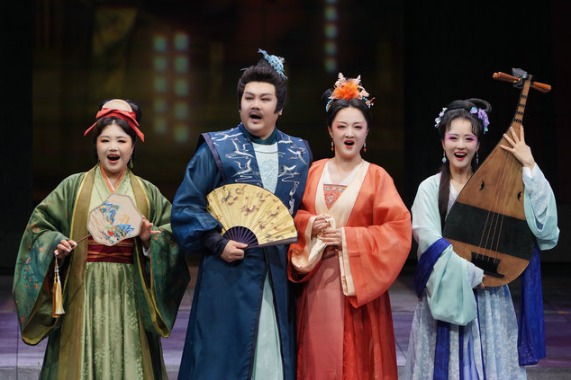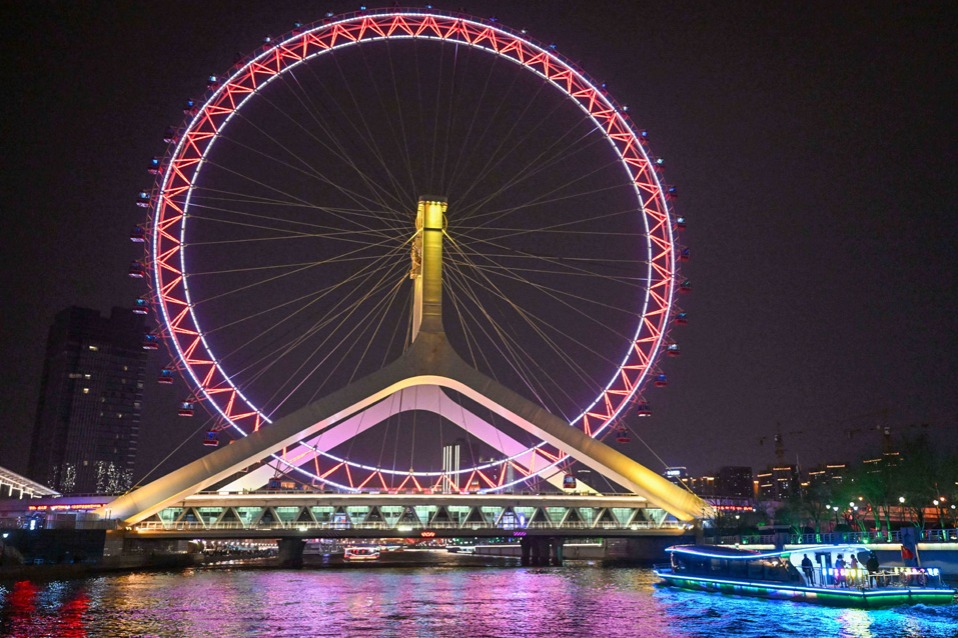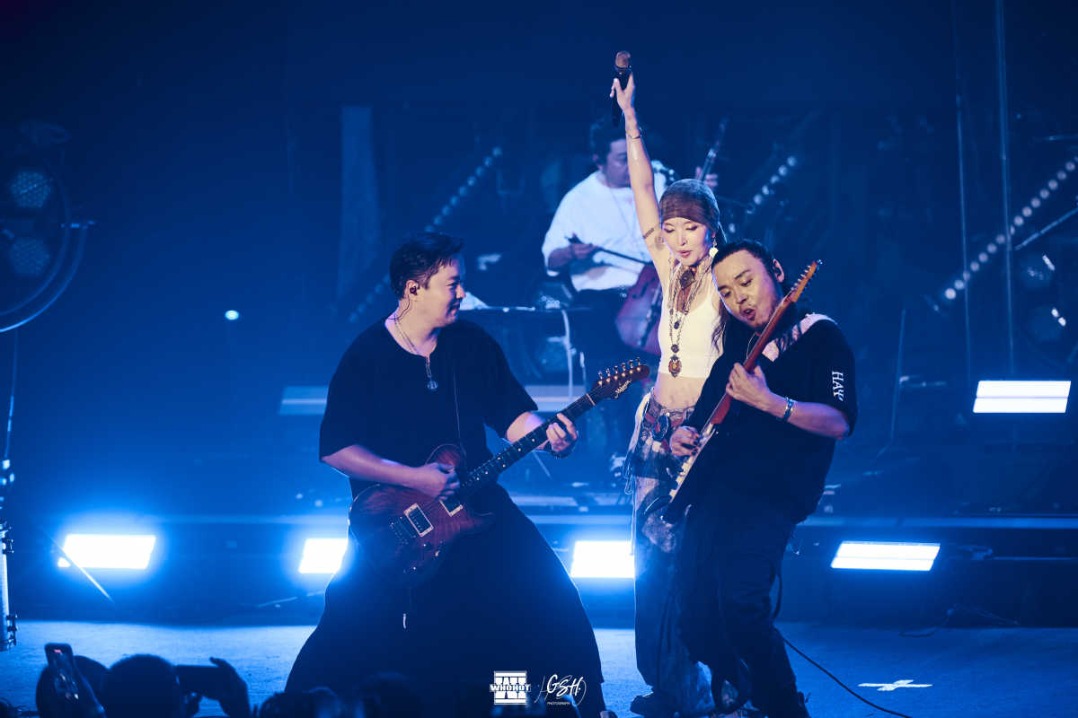Soprano's voice rises to the challenge

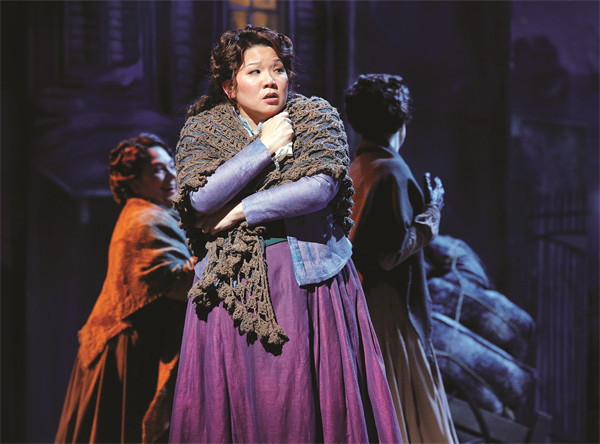
Chinese American Karen Ho says struggles of opera character mirror her journey, Lia Zhu reports in San Francisco.
On stage at the San Francisco Opera, Chinese American soprano Karen Ho brings warmth and fragility to the role of Mimi in La Boheme, Giacomo Puccini's timeless portrayal of love and loss among struggling artists in 19th-century Paris.
For Ho, the story of Mimi is more than a romantic tragedy — it mirrors her own journey as a passionate artist navigating challenges in a foreign land.
"Love is something that is always happening," Ho says. "The love story in this opera reminds me of being a student, in our 20s, learning what it means to fall in love. That's why this story resonates with so many people."
The opera's plot, she adds, is surprisingly familiar.
"It feels like a student dormitory," she jokes. "Four male roommates and a girl from next door knocking just to make friends — it still happens today, maybe borrowing sugar or oil."
Ho, now in her 15th year in the United States, arrived in the country with determination and little certainty. After completing a Master of Music program at the Eastman School of Music and earning an Artist Diploma from the University of Cincinnati College-Conservatory of Music, she faced a tough reality: at nearly 30 years old, she had gone beyond the age criteria for many artist programs that often favor younger singers.
Undeterred, she built her career while working part time in New York.
"I didn't want to rely on my family," she recalls. "I taught piano, commuting two hours each way for just $20 an hour. That income supported occasional voice lessons and auditions."
But, she adds, "like the characters in the opera, I had hope and a dream to pursue".
It was during her training in the US that Ho developed a deeper connection to opera as a multidisciplinary art.
"In Asia, I hadn't experienced full-length operas. I used to think opera was just loud singing and repetitive love stories," she says. "But here, I saw how opera brings together so many elements — music, acting, costumes, design. That's when I realized how rich and collaborative the art form really is."
Her breakthrough came in 2016, when she was cast as Princess Jia in San Francisco Opera's Dream of the Red Chamber, a landmark opera adaptation of the Chinese literary classic by Bright Sheng and David Henry Hwang.
"I was young then, so I felt more excitement than pressure," she says. "I already had ties to the San Francisco Opera from their summer program in 2014. So when I was cast, I was overjoyed. It felt surreal.
"To be part of an all-Asian cast and creative team for such a historic production was an incredible honor," she adds.
Since then, she has expanded her repertoire across the country, debuting in the title role of Madame Butterfly with companies including Opera Philadelphia and Boston Lyric Opera during the 2023-24 season.
Reflecting on her roles, from Princess Jia to Butterfly and Mimi, Ho says performing as an Asian artist in Western opera requires resilience and adaptability.
"It hasn't been easy. Besides hard work, it takes timing and luck," she says. "When opportunities come, I take them."
Her upbringing, she adds, instilled in her a strong sense of discipline. "I think my cultural background gave me a high tolerance for challenges," she says.
In a 2016 production by the New Jersey Festival Orchestra, Ho performed the emotionally charged soprano, Lament of the Yellow River, from The Yellow River Cantata, composed by Xian Xinghai in 1939 during the Chinese People's War of Resistance Against Japanese Aggression (1931-45).
"I sang it for my teacher in New York, who has no Chinese background but was deeply moved," she says. "The lyrics are powerful, and the music is hauntingly beautiful. He couldn't understand why such music hadn't been performed more widely in the US."
Citing San Francisco Opera's upcoming production of The Monkey King, a new opera based on Chinese classic novel Journey to the West, Ho expressed hope that Chinese stories will continue to gain global recognition.
"I'm planning to buy a livestream ticket so I can watch it with audiences around the world," she says. "The world should recognize the talent and dedication of Chinese artists."
As the US opera industry slowly opens more roles to Asian performers, Ho remains cautiously optimistic.
"There has been progress, though slow," she says. "But I hope the pace picks up. There are so many talented Asian artists who deserve more chances."
Despite the praise she has received for recent performances, Ho remains grounded. A review in online opera magazine Parterre Box described her Mimi as "lyrical" and "blossoming into a fuller sound", while Boston-based composer Arturo Fernandez called her Madame Butterfly performance "the highlight of the night".
Yet, Ho keeps her focus on the work, not the accolades.
"I don't read reviews during a production," she says with a smile. "I do my best each night. After the show ends, I read them — not for validation, but to reflect and grow."


